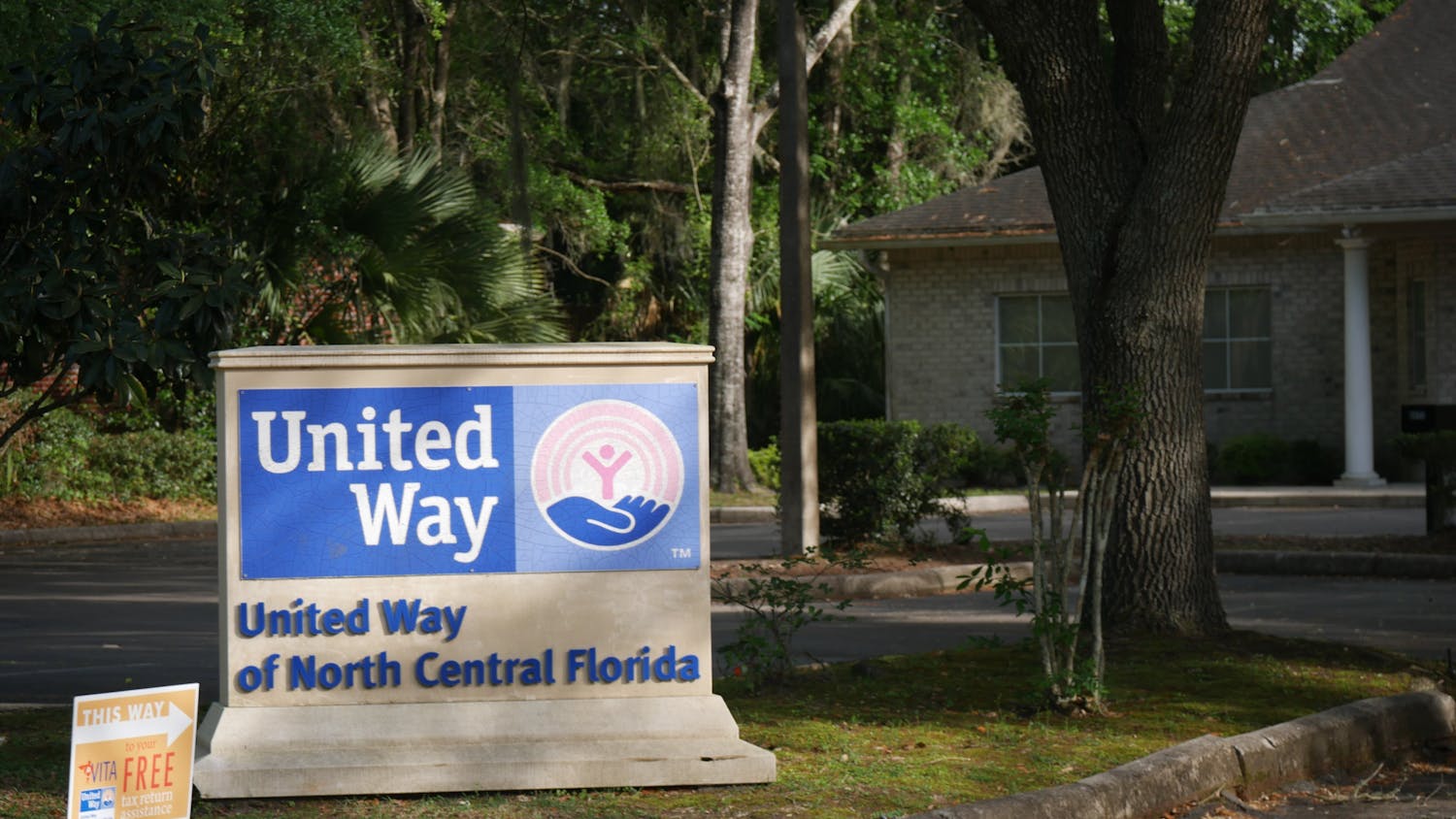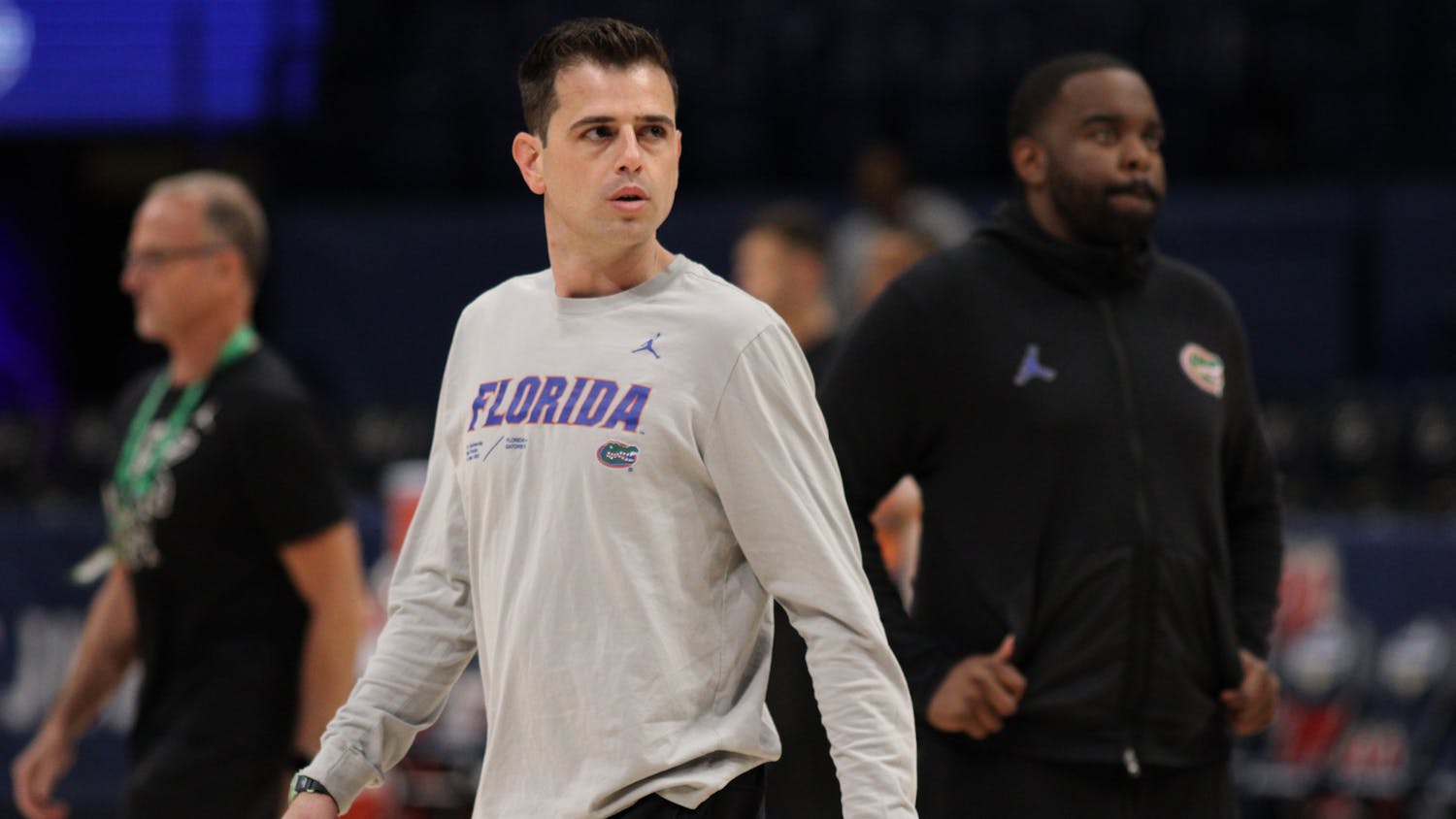"In the past the man has been first; in the future the system must be first." — Frederick Winslow Taylor, "Principles of Scientific Management"
Karl Marx wrote, "Production thus not only creates an object for the subject, but also a subject for the object." Walter Benjamin wrote that "Construction occupies the role of the sub-conscious." Benjamin wrote of the glass, marble and iron of the Paris arcades; of the panoramic experience of reality in a world in which, per Marx, "All that (was) solid melts into air."
Our reality is uglier. We walk Turlington Hall’s stale, eccrine halls. We flood the musty, sun-shielded esplanade lit by the alien glow of the Sobe Life Water vending machine. We sniff the uremic breeze by the bathrooms, the Dinty Moore that wafts from the microwave.
We scan the UFO immensities of Turlington’s façade, ready for takeoff and splattered with Tutoring Zone flyers. We fidget in classrooms flooded with fluorescent light and hermetically sealed from the boiling outdoors.
We rush past the coffin-shaped table in the sunken, de facto smoking room from which a flank-crushing passage sneaks to Rolfs Hall.
As psychologist Paul Watzlawick wrote, "It is impossible not to communicate."
If rococo ironized a France on the verge of revolution with its roses, its ruffles and its pretty pink brushwork, Turlington affronts us with its very absence of ornament, the very denial of any opiate. Turlington punishes us for studying the neoliberal arts and sciences.
Turlington is an exercise in abnegation.
Turlington is an endurance sport.
Turlington is not a proscenium, it is a cell. There are no classroom windows. Higher up, two portholes barred by right angles, gaze over a carnival of bad faith volunteerism and coupon books. Still higher, a ribbon of blacked-out office windows unwinds, a negative revealing nothing.
Whatever eyes there may be are hidden. Turlington itself is watching us.
Turlington encloses us from the outside and protects us from it. Architect Adolf Loos said, "We should build in a style which shuts out the outer world." What are we hiding, and from whom?
Turlington is not Brutalist, it is brutalizing. Turlington traps us in pupil-sized desks, security-grade fluorescence and off-white cinderblock. Turlington taunts us with our own insignificance.
Paul Virilio on bunkers: "I was most impressed by a feeling, internal and external, of being immediately crushed."
We say Turlington was designed to prevent student riots, to drive radicals into corners. We say if Turlington had windows, protesters would have jumped out. J. Bryan Lowder couldn’t find a single historian of Brutalism who verified that explanation.
We would like to jump out of Turlington. There is no exit.
Turlington is a holding room.
W.G. Sebald wrote of bourgeois architecture that, "At the most we gaze at it in wonder, a kind of wonder which in itself is a form of dawning horror, for somehow we know by instinct that outsize buildings cast the shadow of their own destruction before them, and are designed from the first with an eye to their later existence as ruins."
Turlington is the Procrustean deathbed the mid-century built and then fitted itself to.
Architect and Professor Mark Pasnik wrote, "(Brutalist) buildings were considered to be strong and robust, but those were attributes about permanence, not about controlling populations... Figures like Paul Rudolph… were utopian, not dystopian, in their outlook." Scholar Timothy Rohan wrote Rudolph’s buildings "intended to be richly expressive citadels for (high) culture" in the face of "mass culture, overpopulation, and science."
Turlington is a mausoleum for culture.
How could it have not been known Turlington was disorienting, dizzying, dominating and Kafkaesque?
Turlington was not built to be used; it was built to be built.
Turlington is a dungeon we were not intended to enter.
In 1996, Turlington’s lead architect, Mark Schweizer, began his last designs: prisons in South Carolina.
An inquiry to the UF Physical Plant Division informed me UF does not keep records of alternative plans; it keeps records of what was built.
Totalitarianism does not permit alternatives.
Le Corbusier, who cleaned and purged the City, said buildings were "(machines) for living in." Turlington is a machine for living a certain way. We have invaded Turlington.
We have insulted its poorly placed exits, its cavernous stairwells, its vanishing corners, its fireproofed doors; its Runic keys of misdirecting arrows.
Turlington barricades us from each other.
Turlington is a model of non-communication.
Turlington is a labyrinth without a Minotaur.
Ann Manov is a UF French, English and Spanish senior. Her column appears on Mondays.





